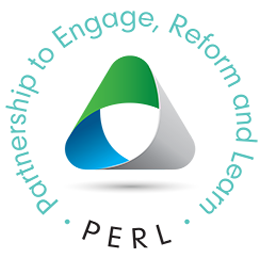
Kano State Government, with technical support from PERL, now has a roadmap to guide the implementation of the Free and Compulsory Basic & Post-basic Education (FCBPE). The Roadmap was developed earlier in 2020 with technical assistance provided by PERL and in collaboration with the Technical Implementation Committee which has 14 sub-committees to review its various aspects. The roadmap is designed to guide the operationalization of various components of the initiative in phases, taking priority and importance of each element into consideration such as:
- Existing policies and laws associated with the FCBPE initiative;
- The human and financial resource requirement;
- Infrastructure and requirements;
- Mandates of key agencies that would implement the initiative;
- Timelines for delivery of various milestones.
Membership of the sub-committees cut across various interest groups/stakeholders particularly, the International Development Partners, Persons with Disability (PWDs), Parents Associations, Women groups, Teacher Associations, Academia, Media, etc.
The Office of the Special Adviser on the FCBPE supported by PERL presented the validated roadmap to His Excellency the Executive Governor of Kano State Dr Abdullahi Umar Ganduje on Monday 30th November 2020 at the Kano State Government House.
In his presentation, the Reform Manager of PERL-ARC, Auwalu Hamza noted that “for effective implementation of the FCBPE, there is need for collaboration, agencies of government need to be held responsible in a positive way, and they need to understand the timelines within which they need to deliver on respective targets set in the Roadmap”.
The Foreign Commonwealth and Development Office (FCDO) Regional Coordinator Hajiya Nafisa Ado noted in her goodwill message that “there are other policies that have been developed and would be the key backbone to the FCBPE. These include the Teacher Policy, the Child-Protection Policy, Girls Education Policy as well as the Inclusive Education Policy”. She implored that these policies be given the required attention.
In his closing remark, the Governor committed to utilizing the roadmap as a guiding framework for achieving the objective of the FCBPE. He noted that the roadmap will go into fine-tuning by the relevant stakeholders, incorporate further contributions especially on how to go about the first phase of implementing the FCBPE. There is need for continuous evaluation, and to set up a solid foundation which future administrations will build on until the society is transformed to one in which the literacy level increases to over 90%.
He added that “…financing Education is a herculean task, so far, we have made budgetary allocation according to international standard, I have signed the Education Development Support Fund Law which provides for 5% of IGR, 1% Statutory allocation for the local government and 2% levy on Capital Projects to go into funding Education. We also have community participation, which with advocacy, will also contribute immensely. There is also corporate social responsibility for well-established organisations and there are development partners that can be attracted through well-articulated programmes, accountability and transparency”.
He thanked the committee and assured that the KNSG will increase its efforts in integrating almajiri education.
The Kano State Government (KnSG) launched the Free and Compulsory Basic and Post-Basic Education (FCBPE) initiative in September 2019 to ensure that every child has access to free education. The programme is aimed at absorbing the over one million out of school children in the State and integrating the Islamic and Tsangaya systems of education with the conventional system; this is expected to address concerns about almajiri who constitute the highest number of out of school children in the state. Another objective of the initiative is to promote the education of the girl child, people with special needs and other marginalized groups.
